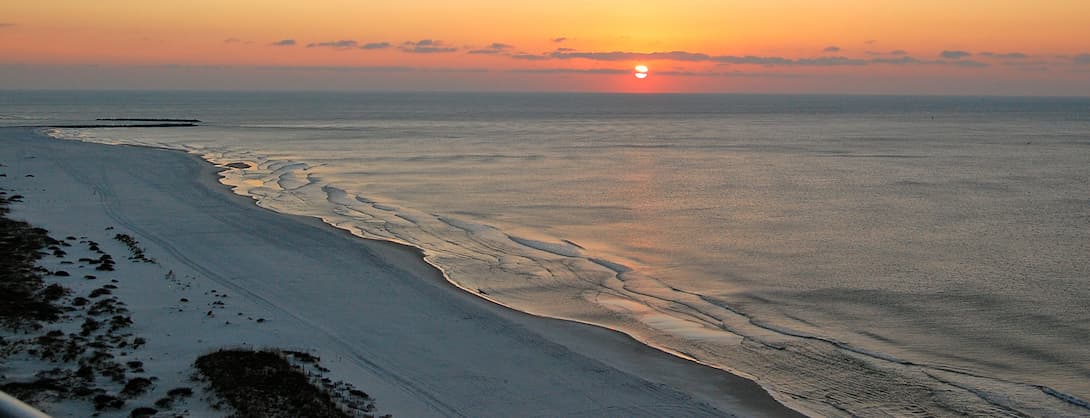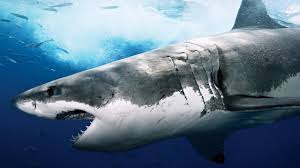
If you live anywhere near a coast, chances are you’ll spend some time on the water this summer. While the Gulf, Atlantic, and and Pacific coasts are all gorgeous in their own way, each can be fraught with danger (...and they all have great whites). We decided we’d compile a handy little list of things that can kill you, annoy you, or cost you a lot of money as a result of beach encounters gone wrong. We’ll focus on the Gulf coast for this instance, but be sure to check back for other location-specific lists!
THINGS THAT CAN KILL YOU
In the interest of keeping the beach tourism industry afloat, we’ll try to keep this list of ICD-10 codes short and sweet. The good news is that none of these incidents automatically result in death, but the bummer is that they are (somewhat) common, and can have permanent effects.
-
T63.511S Toxic effect of contact with stingray, accidental, initial encounter. Depending on the season, stingrays may or may not be out in full force. Here’s how to avoid these skittish creatures: shuffle your feet when you’re in the water, and they’ll likely skedaddle. Should you catch a barb anyway, soak the body part in the hottest water you can stand (this will inactivate the venom), and seek medical attention.
-
W56.41XA Bitten by shark, initial encounter. Most sharks are pretty harmless to humans, but
 shark bites can occur if the animal is provoked, threatened, or mistakes you for a regular food source. Make sure to let someone know when you’re swimming, avoid going in the water during purple flag conditions, and seek immediate medical attention if bitten.
shark bites can occur if the animal is provoked, threatened, or mistakes you for a regular food source. Make sure to let someone know when you’re swimming, avoid going in the water during purple flag conditions, and seek immediate medical attention if bitten. -
X37.0XXA Hurricane, initial encounter. Thankfully, technology is such that hurricanes don’t strike the US without warning, but that doesn’t mean they don’t pose a major threat to life, limb, and property. Heed evacuation warnings and work out an emergency plan with your family beforehand.
THINGS THAT WILL ANNOY YOU
Sometimes, a perfect afternoon can be derailed by something completely out of your control. Thankfully, the ICD-10 codes on this list aren’t generally deadly, and they’re also somewhat uncommon.
-
T63.621A Toxic effect of contact with jellyfish, accidental, initial encounter. Yes, it is possible to die from jellyfish stings, but it’s not likely. In many cases, you’ll be able to see part of the jellyfish on the surface (like a man-of-war), or you might be clued in to their presence by a purple flag or specimens washing up on the shore.
-
A93.1 Sandfly fever. This isn’t very common in the US, but if you’re on a beach in the Mediterranean, the environment might be ripe for this mild (but unpleasant) fever. Sandfly fever is also known as pappataci fever, part of which is Italian for “silent.” This helps distinguish sandflies from mosquitos, which usually make noise as they fly.
-
Z77.121 Brown tide. You’re not likely to get sick from this unsightly mess, but it can definitely put a damper on your enjoyment of the water. Brown tide is caused by an algae called Aureoumbra lagunensis, and it’s pretty localized to the Gulf coast (Florida, Texas, and the coastline between).
THINGS THAT COST YOU MONEY
It’s not cheap to plan a trip to the coast and back, so cross your fingers that your boat doesn’t break and your jet ski stays unexploded.
-
V93.62XA Machinery accident on board fishing boat, initial encounter. I haven’t the faintest idea what might cause a machinery accident on your fishing boat (unless it’s this scene from JAWS), but I’m guessing it’s going to cost some serious cash and ruin the rest of your beach trip.
-
V93.53XA Explosion on board other powered watercraft, initial encounter. Either you’re in a James Bond movie and your jet ski just blew up in a rad escape...or you’re not in a Bond movie and now you’re out a lot of money because your jet ski just blew up.
We hope you enjoyed this informative (and tongue-in-cheek) look at some ICD-10 codes that you might see if your private practice is anywhere from Sarasota to Corpus Christi. Check out our ICD-10 codes ANIMAL STYLE, or codes about green beer and hangovers.



